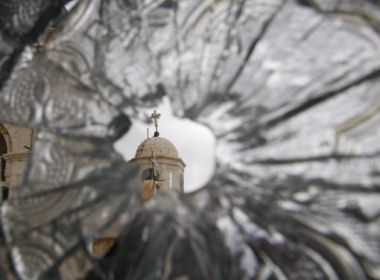Sectarian violence in the wake of the Arab Spring

It is going to be a long time before peace is restored to the Middle East, former Foreign Secretary Jack Straw said last night.
He was speaking at the first of this year's Westminster Faith Debates last night. Organised by former Labour MP Charles Clarke and Linda Woodhead, Professor of Sociology of Religion at Lancaster University, the series of debates bring together leading academics and public figures to debate the latest research on religion.
The topic for Wednesday's debate was sectarian violence in the wake of the Arab Spring, with speakers presenting their views on the role of religion in Arab uprisings.
Dr Toby Matthiesen, research fellow in Islamic and Middle Eastern studies at Pembroke College opened the discussion, arguing that the conflict in the Middle East was not about religious beliefs.
"I think it is quite important to understand that doctrinal differences exist within every religion," said Dr Matthiesen.
"I would argue that religious beliefs have nothing to do with the current sectarian conflict we are seeing in the Middle East."
Also on the panel was lecturer in Politics, Philosophy and Religion at Lancaster University, Dr Shuruq Naguib who shed light on the changing views of religion in a post Islamic empire.
She said: "With the rise of the modern nation state which prioritised not religious identity but national identity, not enough thought has been given to the role of religion in the new type of state and the place of religious identity in the post Islamic empire."
The third panellist was Dr Bassma Kodmani, former head of foreign relations and spokesperson of the Syrian National Council.
She said the Arab Spring was a "reaction to authoritarian rules based on civil values and democratic values such as citizenship, democratic governance, participation of civil society and human rights".
She continued: "What we are witnessing today is how societies are working with the legacies and this legacy is a heavy one. The movement started on the basis of demands for good governance.
"The governance of a diverse society is probably the most important aspect of good governance responsible management of a diverse society is a key factor for stability.
"If we look across the world diverse societies operate and are stable depending on whether governments have been responsible in the way they draft their laws and public policies and economic policies."
Straw in his contribution noted that religious conflict was not confined to the Middle East or the early part of the 21st century.
"More people have been killed in Europe in the name of God than even today have been killed in the Middle East," he said.
He suggested money was a factor in the conflict in the Middle East: "I think it is right to say that there has been a 'lid on a pressure cooker' exercised by the Arab nationalists. For certain in that instability, very powerful institutions and governments have sought to exacerbate the conflicts due to finance."
He continued: "What do we do about it? First of all I think we have to accept just as the resolution of religious conflict in Europe took a long time, this is going to take a long time.
"There is a view that I do not share, that Islam and democracy cannot co-exist. Democracy is about being swayed to the majority, but it can only work if the majority gives power to the minorities and the individuals."











